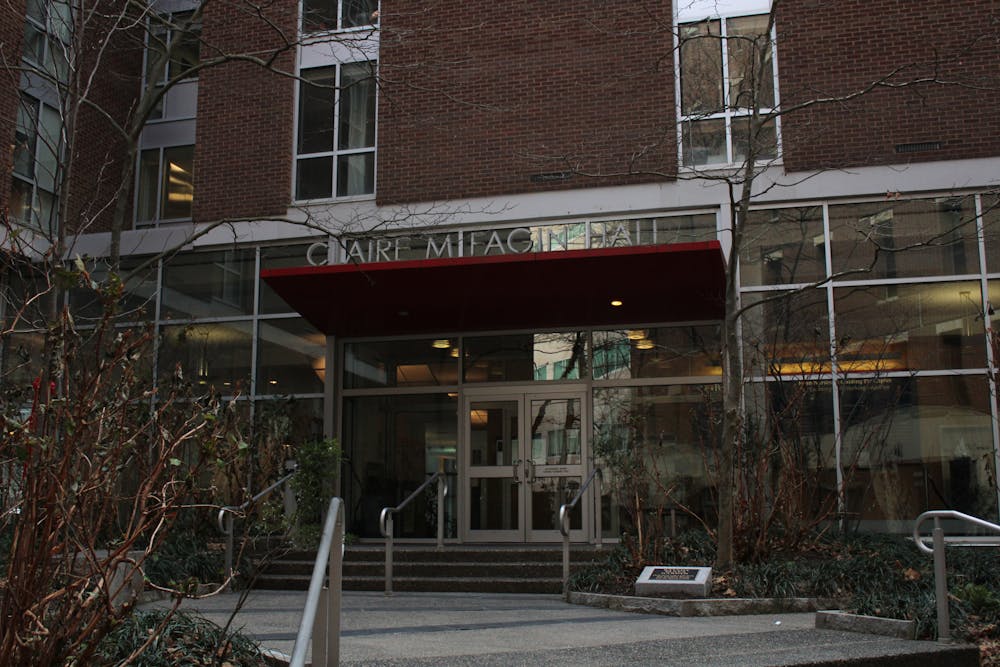Penn researchers, faculty, and graduate students are working together to create Digital Healing, an artificial intelligence platform that facilitates collaborative art-making and communication.
Digital Healing is an AI creative arts platform that brought together individuals from the School of Social Policy & Practice, School of Nursing, and School of Engineering and Applied Science to create an interdisciplinary program intended to serve Philadelphia youth. In collaboration with the arts and mental health initiative Creative Resilient Youth, the team was awarded a Penn4C — an initiative between the Nursing School and the Engineering School — community-led partnership grant.
The platform combines creative arts and AI to combat the mental health epidemic currently facing youth in Philadelphia and around the world.
SP2 professor and Digital Healing principal investigator Siva Mathiyazhagan characterized mental health issues as a “public health crisis” and added that they are the leading cause of suicide among youth globally. Mathiyazhagan said that Digital Healing was created to combat the growing challenges in youth mental health and integrate creative arts further into digital spaces.
In an interview with Penn Today, Nursing School professor and Digital Healing PI Seul Ki Choi said that “for younger generations, digital health interventions have been especially helpful in improving mental health.”
“Our project uses digital spaces — proven to be effective in supporting health and building community — as a safe and healing platform for improving mental health among BIPOC young individuals in the Philadelphia region,” Choi added.
Digital Healing was intentionally created to be culturally aware and more receptive to the communities in which it works, according to the researchers.
“The Digital Healing project’s goal is to create a more culturally responsive way of creating, to do real artwork in real-world situations as well as … collaborate with friends and community members and colleagues in the digital space,” Mathiyazhagan said.
RELATED:
Wellness at Penn continues efforts to combat pneumonia, respiratory illnesses on campus
Penn Leonard Davis Institute of Health Economics announces 14 small grant funding recipients
Co-director of CRY and Digital Healing PI Avani Alvarez explained that the platform begins by asking users to fill out a check-in on their mental health, Penn Today wrote. Following the check-in, the platform uses AI to generate creative artistic suggestions personalized to the user.
“The AI is able to take that initial check-in and provide prompts based on how you’re feeling that day,” Alvarez said. “If you’re feeling really low, it can provide a prompt that will either help quell that [issue] or help you to digest it a little more while making art — and so on and so forth.”
In this way, Wharton and Engineering graduate student Eileen Feng explained that AI can be used as a method to “reduce the mental blocker that often comes in the creative process and building a community that prioritizes the process over outcome of creativity, fostering mental resilience and peer connection over time.”
A primary priority for the team was maintaining transparency and consistent communication with their greater Philadelphia youth and community partners.
“A key process which we did [take] is constantly communicating back to the youth members who were working with us,” Mathiyazhagan said.
Mathiyazhagan added that maintaining these relationships helped in “taking a responsibility for the communication as well as being accountable to the community.”
The platform will launch this summer, with the final systems being finalized in the coming weeks. The Digital Healing team also plans to launch the platform in other cities, including New York.
RELATED:
Wellness at Penn continues efforts to combat pneumonia, respiratory illnesses on campus
Penn Leonard Davis Institute of Health Economics announces 14 small grant funding recipients
Staff reporter Ashley Wang covers student health and wellness and can be reached at wang@thedp.com. At Penn, she studies philosophy, politics, and economics.









